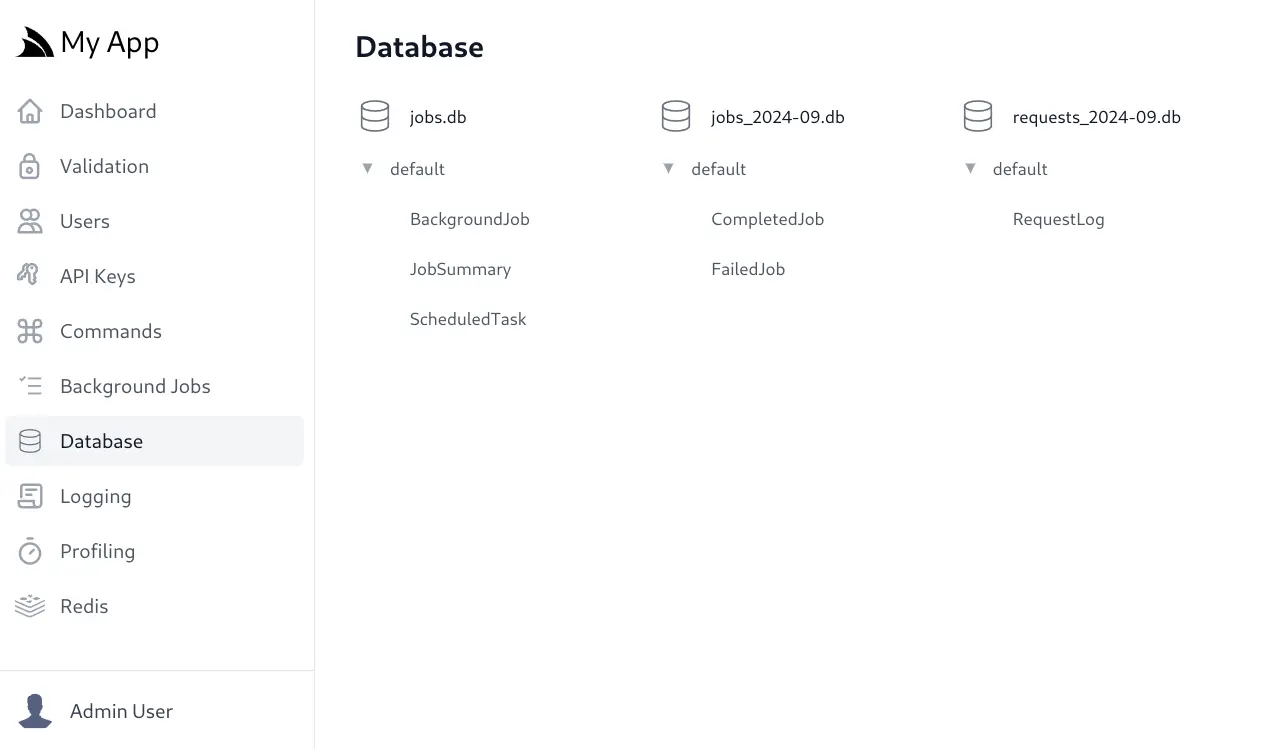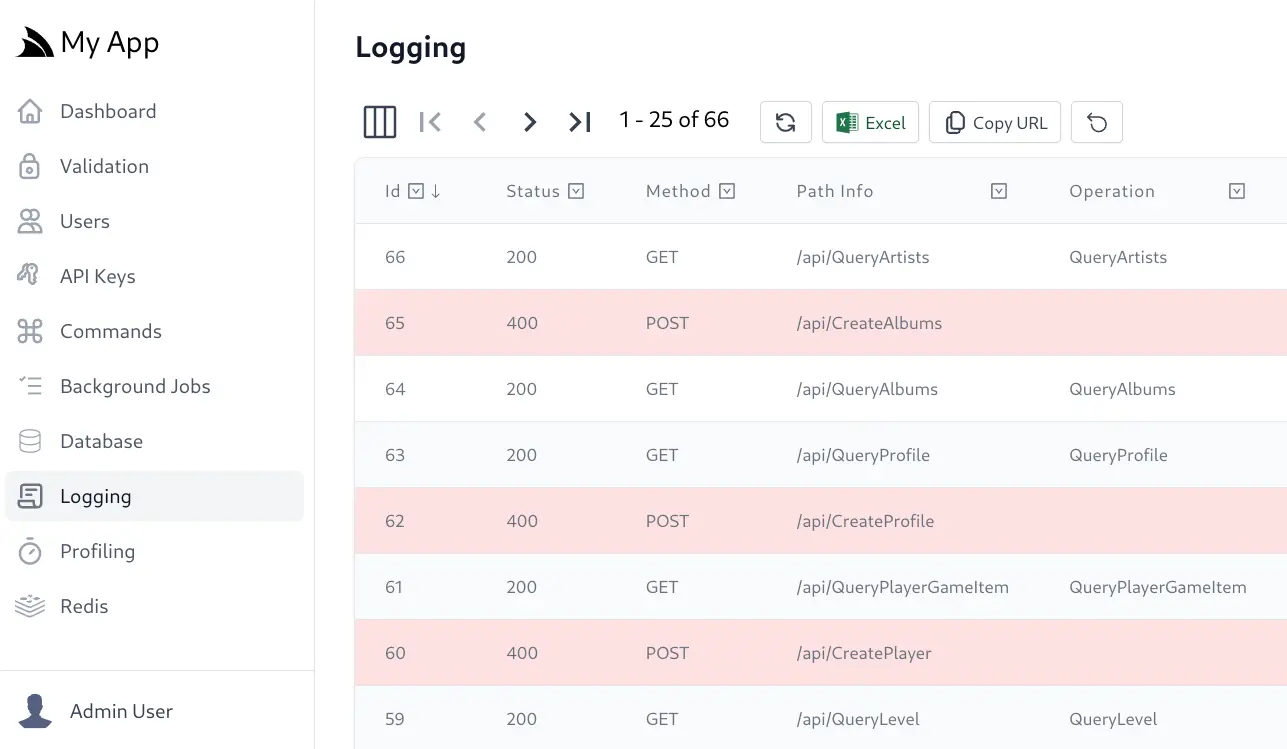Up until this release all of ServiceStack's database features like AutoQuery have been database agnostic courtesy of OrmLite's support for popular RDBMS's so that they integrate into an App's existing configured database.
Background Jobs is our first foray into a SQLite-only backend, as it's the only RDBMS that enables us to provide encapsulated black-box functionality without requiring any infrastructure dependencies. It's low latency, high-performance and ability to create lightweight databases on the fly make it ideal for self-managing isolated appliance backends like Background Jobs and Request Logging which don't benefit from integrating with your existing RDBMS.
The new ServiceStack.Jobs NuGet package allows us
to deliver plug and play SQLite backed features into .NET 10 Apps that are configured with any RDBMS
or without one. The next feature added is a SQLite backed provider for Request Logs
with the new SqliteRequestLogger which can be added to existing .NET 10 Apps with the
mix tool:
npx add-in sqlitelogs
Which adds a reference to ServiceStack.Jobs and the Modular Startup config below:
using ServiceStack.Jobs;
using ServiceStack.Web;
[assembly: HostingStartup(typeof(MyApp.ConfigureRequestLogs))]
namespace MyApp;
public class ConfigureRequestLogs : IHostingStartup
{
public void Configure(IWebHostBuilder builder) => builder
.ConfigureServices((context, services) => {
services.AddPlugin(new RequestLogsFeature {
RequestLogger = new SqliteRequestLogger(),
EnableResponseTracking = true,
EnableRequestBodyTracking = true,
EnableErrorTracking = true
});
services.AddHostedService<RequestLogsHostedService>();
});
}
public class RequestLogsHostedService(ILogger<RequestLogsHostedService> log, IRequestLogger requestLogger) : BackgroundService
{
protected override async Task ExecuteAsync(CancellationToken stoppingToken)
{
var dbRequestLogger = (SqliteRequestLogger)requestLogger;
using var timer = new PeriodicTimer(TimeSpan.FromSeconds(3));
while (!stoppingToken.IsCancellationRequested && await timer.WaitForNextTickAsync(stoppingToken))
{
dbRequestLogger.Tick(log);
}
}
}
This will use a Hosted Background Service to flush Request Logs to the requests SQLite database every 3 seconds (configurable in the PeriodicTimer).
If your App is already using RequestLogsFeature configured (e.g. with Profiling) you'll want to
remove it:
public class ConfigureProfiling : IHostingStartup
{
public void Configure(IWebHostBuilder builder) => builder
.ConfigureServices((context, services) => {
// services.AddPlugin(new RequestLogsFeature());
services.AddPlugin(new ProfilingFeature
{
IncludeStackTrace = true,
});
});
}
Rolling SQLite Databases
The benefit of using SQLite is that databases can be created on-the-fly where Requests will be persisted into isolated requests Monthly databases which can be easily archived into managed file storage instead of a singular growing database, visible in the Database Admin UI:

SQLite logs will also make it easier to generate monthly aggregate reports to provide key insights into the usage of your App.
AutoQuery Grid Admin Logging UI
As SQLite Requests Logs also makes it efficiently possible to sort and filter through logs, the
Logging UI will switch to using a fully queryable AutoQueryGrid when using SqliteRequestLogger:

Export to CSV
When needed you can export your Request Logs to CSV for easy import into external systems using SQLite's
sqlite3 utility, e.g:
sqlite3 -header -csv requests_<YYYY>-<MM>.db "SELECT * FROM RequestLog" > output.csv
Custom Exports
For more complex queries, you can also use the .mode csv and .output commands within the SQLite shell:
sqlite3 requests_<YYYY>-<MM>.db
Then set export parameters before running the query and exiting:
.headers on
.mode csv
.output output.csv
SELECT * FROM RequestLog;
.quit